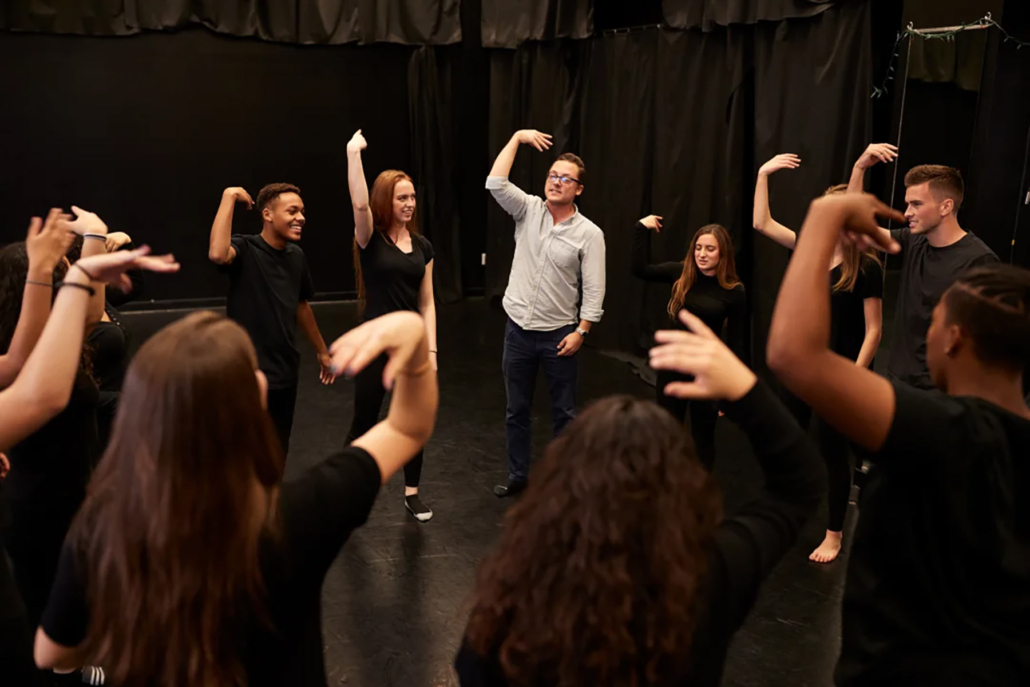As parents, we always aspire to support our children’s dreams, no matter how ambitious. If your child has a burning desire to become an actor, you might wonder about the challenges they’ll face and how you can help them succeed. While it’s true that the road to becoming a professional actor is often steep, understanding the hurdles can help you prepare your child for the journey ahead. At Arts Edge, we believe that every child, with the right training and support, can reach their full potential and find their performing edge. In this article, we’ll explore the ten most common reasons, child actors don’t make it as an actor and how you can increase their chances of rocking their next performing arts audition.
1. A Competitive Industry
It’s no secret that acting is a competitive field. Thousands of talented individuals vie for a limited number of roles. In fact, according to the Screen Actors Guild, less than 5% of their members work regularly. However, remember that statistics only tell one side of the story. Competition might be fierce, but with the right preparation, your child can stand out from the crowd.
2. Lack of Professional Training
One of the main reasons some aspiring actors struggle is the lack of professional training. Acting, like any other skill, requires dedication and constant honing. At Arts Edge, we offer structured acting classes that cover a range of techniques, designed to help young actors discover their unique talents and improve their craft.
3. Limited Exposure and Networking
The acting industry thrives on connections. Exposure to the right people and opportunities often opens doors. Encourage your child to participate in local theater productions, acting events, and workshops. These can provide valuable experience and exposure to industry professionals.
4. Inadequate Audition Preparation
Auditioning is an art in itself. Many budding actors falter here due to nerves or inadequate preparation. At Arts Edge, we teach students how to prepare effectively for auditions, giving them the confidence and skills to impress casting directors.
5. Lack of Persistence and Resilience
Rejection is an inevitable part of an actor’s journey. Learning to bounce back after a setback is crucial. As a parent, fostering resilience and persistence in your child is one of the most valuable lessons you can impart.
6. Poorly Managed Expectations
It’s important to keep expectations realistic. Rather than focusing solely on stardom, encourage your child to appreciate the process of learning and growth in their acting journey. This mindset will keep them grounded and motivated.
7. Not Adapting to Feedback
Feedback, both positive and constructive, is crucial for an actor’s development. Teach your child to view criticism as an opportunity to learn and grow, rather than a setback.
8. Neglecting Academic Education
While acting may be your child’s passion, it’s essential not to neglect academic education. A well-rounded education not only provides a safety net but also enriches an actor’s performances by offering broader perspectives and understanding.
9. Inadequate Financial Planning
Pursuing an acting career involves certain costs, such as acting classes, headshots, and possibly travel for auditions. Planning and budgeting for these costs from the beginning can help ensure a smoother journey.
10. Lack of Parental Support
Your support as a parent is invaluable. Be there for your child, celebrate their achievements, and help them navigate challenges. Your belief in their abilities can fuel their determination to succeed.
The Role of Arts Edge in New Jersey
At Arts Edge, we understand the challenges your child might face as they pursue their acting dreams. Our experienced coaches and comprehensive programs provide the professional training your child needs to excel. We also offer advice on industry networking, audition preparation and college prep, giving your child the best chance to thrive in the acting industry.
Acting is a journey filled with ups and downs, but with passion, dedication, and the right support, your child can navigate these challenges and potentially turn their acting dreams into reality. As they take center stage, you’ll be their biggest fan, knowing you helped them get there.

 Arts Edge
Arts Edge Arts Edge
Arts Edge